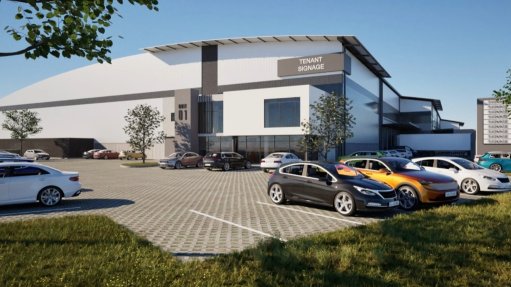Climate and development investment platforms as tools for transformation
It takes a while but, slowly, one gets to see the possibility of things. Climate action has long been the mainstay of a specific tradition, which is based on the assumption that, if you throw enough Molotov cocktails at a thing that you have come to loathe, the world will just change.
Even where change is advocated for in various types of activism and issues are taken up, it seems one will never be able to satisfy everyone. The human condition sets a very high bar for ‘cause purity’. There are many people who want to share their own ideas on what the new car engine must look like but have very little skill to build one.
We do not live in a world where old systems can just be plugged out and new ones then appear from thin air. Some people’s dream of a better world may also leave the supposed beneficiaries with anxiety and uncertainty. The promise of large wind turbines and solar panels may satisfy cause purity but offer little dividend to those who must face the consequences of a transition. While transitions can bring about localised fears in coal mining regions, for example, they seemingly bring about a lot of joy for those who do not have to live with the consequences of the transitions themselves.
No transition, it would seem, can provide the solutions for all the complicated problems of life.
On the question of solutions, there is a tendency among some climate activists to wait until the time to act is right – when the right political leadership and an unimpeachable government are in place, when cheap or free finance is available, and when a comradely coalition of players comes together to preside over the most idealistic of arrangements where nothing will possibly ever go wrong. Such a tie-up through a fraternity of like-minded climate players will never see the light of day. Cooperation and doing things in real life are tough. But we have to proceed.
These tendencies have nurtured a tradition that wants to cast everything in stone, attempting to block any deviation from a ‘chosen path’ that breaks out of a specific ideology, group or culture of doing things. Attempting to try out something new is seemingly a moral offence.
Aspirations in the domain of climate solutions on the African continent require us to test the continent’s own templates. Africans have to take their freedom into their own hands to explore different ways of bringing about change within the culture of climate activism, as there is room for a diversity of approaches. This requires the flourishing of new methods, building alternative networks to those of traditional players (where climate activists tend to speak to themselves) and embracing tools for change.
Climate and Development Investment Platforms (CDIPs) are among the tools we can use. CDIPs are a derivative, or perhaps an evolving, model of country platforms such as just energy transition partnerships (JETPs). However, they are by no means foolproof.
Several living experiments are currently under way – including in South Africa, Senegal, Vietnam and Indonesia – but it is too early to tell whether they will be successful. These deals have international partners, also referred to as the International Partners Group, that are meant to mobilise public and private finance, both internationally and domestically.
As these country, or investment, platforms progress, we are learning a great deal in terms of how to turn Nationally Determined Contribution ambitions into economically aligned approaches through the scaling up of finance, technology adoption and structural change in the energy sector, and in adaptation. They are tools for hard-wiring clean-energy transitions to hopefully deliver far more positive economic benefits. Effectively, country platforms are a way of linking concessional climate finance to large-scale, clean-energy infrastructure programmes. Climate solutions cannot be divorced from the broader economic context.
CDIPs themselves can take the form of differentiated investment platforms that can be layered at the country or subnational level, or be technology specific. They align four things: political will, technical assistance, a fair and just financial package of investable outcomes, and climate objectives that do not compromise social justice. The usefulness of CDIPs is that they also lend themselves to greater public scrutiny than conventional infrastructure projects. This level of scrutiny – which should be amplified – is the only way to break the back of infrastructure projects that are often shrouded in secrecy and where flows of capital to specific project implementors can involve backhanders.
CDIPs also ensure that the solution is created by the recipients and, hopefully, in the most beneficial way through multistakeholder processes.
Finding the right opportunity to use investment platforms in developing and emerging economies should involve tying climate activism to concrete solutions. This is what we ought to defend instead of merely demanding change and eventually resorting to lawfare if nobody is listening. Investment platforms are alternative tools that do not take away the merits of conventional approaches. They require a defence of a trajectory that can no longer be about just preaching, whispering into ears or throwing legal bombs. Real transitions happen when you do not just talk about them but do something to make sure they happen for real.
The art is not so much about moral rhetoric and acts of spectacle but getting things going in a less than perfect world. The advent of JETPs has taught us how to do things differently.
To change old path-dependencies is costly and will be resisted, as the stakes are always high. You must have skin in the game to be counted as credible. It is not enough to describe what the engine must look like; you have to roll up your sleeves and do some work.
Article Enquiry
Email Article
Save Article
Feedback
To advertise email advertising@creamermedia.co.za or click here
Announcements
What's On
Subscribe to improve your user experience...
Option 1 (equivalent of R125 a month):
Receive a weekly copy of Creamer Media's Engineering News & Mining Weekly magazine
(print copy for those in South Africa and e-magazine for those outside of South Africa)
Receive daily email newsletters
Access to full search results
Access archive of magazine back copies
Access to Projects in Progress
Access to ONE Research Report of your choice in PDF format
Option 2 (equivalent of R375 a month):
All benefits from Option 1
PLUS
Access to Creamer Media's Research Channel Africa for ALL Research Reports, in PDF format, on various industrial and mining sectors
including Electricity; Water; Energy Transition; Hydrogen; Roads, Rail and Ports; Coal; Gold; Platinum; Battery Metals; etc.
Already a subscriber?
Forgotten your password?
Receive weekly copy of Creamer Media's Engineering News & Mining Weekly magazine (print copy for those in South Africa and e-magazine for those outside of South Africa)
➕
Recieve daily email newsletters
➕
Access to full search results
➕
Access archive of magazine back copies
➕
Access to Projects in Progress
➕
Access to ONE Research Report of your choice in PDF format
RESEARCH CHANNEL AFRICA
R4500 (equivalent of R375 a month)
SUBSCRIBEAll benefits from Option 1
➕
Access to Creamer Media's Research Channel Africa for ALL Research Reports on various industrial and mining sectors, in PDF format, including on:
Electricity
➕
Water
➕
Energy Transition
➕
Hydrogen
➕
Roads, Rail and Ports
➕
Coal
➕
Gold
➕
Platinum
➕
Battery Metals
➕
etc.
Receive all benefits from Option 1 or Option 2 delivered to numerous people at your company
➕
Multiple User names and Passwords for simultaneous log-ins
➕
Intranet integration access to all in your organisation

















